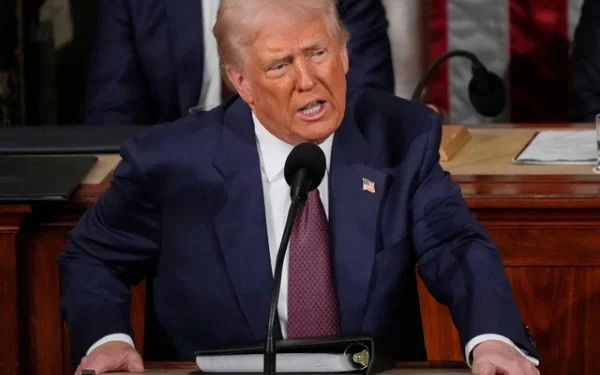Washington, D.C. — U.S. President Donald Trump’s recent statements about Iran have triggered alarm among global observers and analysts, who are increasingly concerned about the lack of a clear and consistent U.S. policy towards Tehran. In the span of a few days, President Trump has oscillated between calls for peace and threats of escalation, including remarks that hint at potential U.S. involvement in targeted attacks, even against Iran’s Supreme Leader, Ayatollah Ali Khamenei.
The conflicting tone of Trump’s rhetoric—at times promoting diplomatic resolution and at other times implying support for Israeli military campaigns—has heightened international tensions and left allies, analysts, and even members of his own administration questioning the real objective behind the White House’s strategy.
Contradictory Messages from the Oval Office
Promises of Peace vs. Threats of Assassination
In recent days, President Trump has made contradictory public statements about the United States’ approach to Iran. At one moment, he speaks about avoiding war and working toward a swift peace in the Middle East. At another, he hints at joining Israel’s bombing campaign against Iranian targets, even implying potential action against Ayatollah Ali Khamenei, Iran’s top political and religious authority.
These statements have left observers scrambling to determine whether Trump is simply using bluster as a bargaining tactic or if the U.S. is on the verge of committing itself to a dangerous new military conflict.
White House Statement Adds to Uncertainty
According to reports by foreign news agencies, the White House issued a statement on Thursday indicating that President Trump will decide within the next two weeks whether the U.S. will engage militarily with Iran. This vague and open-ended announcement has only added to the uncertainty surrounding American foreign policy, particularly regarding the future of U.S.-Iran relations.
The announcement has sparked global anxiety, with international media outlets, policy think tanks, and military analysts warning that any miscalculation or rash decision could plunge the Middle East into chaos.
Is Israel Driving the Agenda?
Netanyahu’s Influence Over U.S. Policy
One of the key concerns raised by analysts is the degree of influence exerted by Israeli Prime Minister Benjamin Netanyahu over President Trump’s Middle East policy. Netanyahu, who has long viewed Iran as a direct existential threat to Israel, has consistently pushed for a stronger U.S. stance against Iran, including military action.
Observers argue that Trump’s recent escalation in rhetoric mirrors the hardline approach championed by Netanyahu, raising questions about whether the U.S. president is formulating an independent strategy or is being manipulated by Israeli interests.
Criticism from Policy Experts
Critics suggest that President Trump could be unwittingly playing into Netanyahu’s hands, with some likening the situation to a proxy decision-making process where U.S. military might is potentially being leveraged to serve Israeli strategic objectives.
The Psychological Strategy Behind Trump’s Rhetoric
“Madman Theory” in Play?
Some analysts believe that Trump’s approach toward Iran is not random, but rather a calculated application of the so-called “madman theory”—a psychological strategy where a leader portrays himself as irrational or unpredictable in order to intimidate opponents and force concessions.
Jamal Abdi’s Analysis
Jamal Abdi, President of the National Iranian American Council (NIAC), argues that Trump’s shifting rhetoric is part of an intentional pressure campaign. According to Abdi:
“Trump is likely trying to force Iran to surrender completely through threats. He is portraying himself as an unpredictable and crazy person in order to pressure Iran into accepting tough conditions that they have rejected for decades.”
Abdi warns that such psychological tactics might backfire, especially given Iran’s strong sense of national sovereignty and resistance to foreign pressure.
Diplomatic Pressure or Path to War?
Trump’s Real Intentions Remain Unclear
While some believe that Trump’s threats are a form of negotiation, others argue that the lack of clarity in his messaging could accidentally trigger a war. If the Iranian government interprets the threats as imminent military aggression, they could respond preemptively, leading to an irreversible escalation.
Furthermore, if Trump is serious about assassinating high-level Iranian officials, such as Ayatollah Khamenei, the implications would be far-reaching—potentially sparking a regional or even global conflict involving Iran’s allies, including Russia and China.
Regional and Global Repercussions of U.S.-Iran Conflict
Fallout Would Not Be Limited to Two Nations
Analysts have issued dire warnings that any conflict between the United States and Iran would not remain contained. The entire Middle East region—including Iraq, Syria, Lebanon, Saudi Arabia, and the UAE—would likely be drawn into the conflict due to alliances, shared borders, and the sectarian divide between Sunni and Shia powers.
Additionally, global oil markets could be severely impacted, with the Strait of Hormuz, a critical chokepoint for international oil shipping, becoming a target for Iranian retaliation. This could disrupt global energy supplies, raise prices, and plunge the world into an economic crisis.
International Community Calls for Restraint
European Union and United Nations Express Concern
The European Union has called for maximum restraint from all sides, urging the U.S. and Iran to return to diplomatic channels. Meanwhile, UN Secretary-General António Guterres has reiterated the importance of avoiding a catastrophic war, stating that “the world cannot afford another large-scale conflict in the Middle East.”
Global powers including France, Germany, Russia, and China have also emphasized the need to preserve the Iran nuclear deal (JCPOA), which President Trump previously abandoned, in hopes of restoring balance and predictability to the region.
The Broader Geopolitical Context
Nuclear Concerns and Arms Race Fears
At the heart of this conflict is Iran’s nuclear program, which the U.S. and its allies claim poses a threat to regional and global security. Iran, however, insists that its program is for peaceful energy purposes and that it is being unfairly targeted and demonized.
Trump’s aggressive posturing could trigger a new arms race in the Middle East, with other nations like Saudi Arabia and Turkey also pursuing nuclear capabilities in response to perceived threats from Iran or Israel.
Conclusion: The Urgent Need for a Clear, Consistent U.S. Policy
The lack of coherence in President Trump’s statements regarding Iran has become a source of global concern. Whether the intention is to intimidate Iran, serve Israeli interests, or prepare for potential conflict, the absence of a transparent and consistent strategy is increasing the risk of miscalculation.
Without a defined diplomatic framework or policy direction, even rhetorical escalation can spiral into real-world consequences. As regional tensions rise and global powers voice concern, it is imperative that the U.S. returns to diplomatic engagement, ensuring that the fragile Middle Eastern balance does not collapse into another devastating war.

























